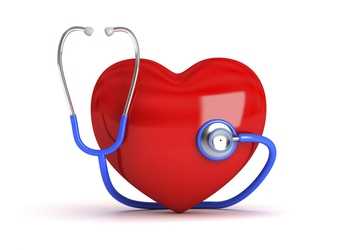How to Reduce the Risk of Heart Disease Naturally
Heart disease is a major public health problem, claiming millions of lives each year. Fortunately, there are natural ways to reduce your risk of heart disease, many of which are within our control. Simple yet effective lifestyle changes can protect your heart and help you live a healthier, longer life. This article explores these natural ways to protect your heart and improve your health.
Nourish your heart with a healthy diet

The foundation of heart health starts with your diet. A diet rich in nutritious foods can help reduce the risk of heart disease. Try incorporating more fruits and vegetables into your daily meals. Whole grains like brown rice, whole wheat, and oats are rich in fiber, which helps lower cholesterol and keep blood sugar levels stable. Choose lean protein sources such as poultry, fish, and legumes to reduce saturated fat intake. Healthy fats from olive oil, avocados, and nuts can help improve your cholesterol profile. These eating habits are simple yet effective ways to promote heart health.
Maintain a healthy weight
Being overweight or obese significantly increases your risk of heart disease. Being overweight puts stress on the heart, leading to high blood pressure and diabetes. By maintaining a healthy weight, you can reduce these risk factors. A balanced diet and regular physical activity can help you achieve and maintain a healthy weight. Remember, gradual and sustainable weight loss is more effective than a quick fix.
Stay physically active
Exercise is the cornerstone of preventing heart disease. Regular physical activity helps maintain a healthy weight, improves blood circulation, and strengthens the heart muscle. You don't have to be a marathon runner; even moderate exercise can make a noticeable difference. Aim for at least 150 minutes of moderate-intensity aerobic exercise or 75 minutes of vigorous-intensity exercise per week. A brisk walk, swim, or bike ride can do wonders for your heart. Don’t forget to incorporate strength training into your daily routine, too.
Face the pressure
Prolonged stress can have a negative impact on your heart by promoting unhealthy habits such as overeating, smoking, or drinking too much alcohol. Although stress is a part of life, it's important to deal with it effectively. Relaxation techniques such as deep breathing, meditation, and yoga can help reduce stress and improve overall health. Engaging in hobbies and activities you enjoy can distract you from stress, and seeking support from friends or professionals can provide an outlet for emotional challenges.
Prioritize good sleep

Sleep is not just a time to rest; It is a key element of overall health, including heart health. Poor sleep can lead to obesity, diabetes and high blood pressure. Improve sleep quality: Aim for 7-9 hours of sleep each night. Establish a consistent bedtime to signal your body when it's time to wind down. Keep your bedroom dark, quiet and cool to create a comfortable sleeping environment. Limit screen time before bed, as the blue light emitted by screens can disrupt your sleep cycle.
Quit smoking
If you smoke, quitting is one of the most important steps you can take to reduce your risk of heart disease. Smoking damages your blood vessels, increases blood pressure and lowers the levels of good cholesterol in your body. Seeking a health care professional, counseling, or a smoking cessation program can play an important role in helping you quit smoking for good. Limit alcohol consumption Moderate drinking is key. While some studies suggest that moderate drinking can protect the heart, excessive drinking can damage the heart. For men, moderate drinking means no more than two drinks per day, while women should limit themselves to one drink per day.
Control your blood pressure
High blood pressure is an important risk factor for heart disease. Regular monitoring and management are crucial. You can control your blood pressure naturally by: Reduce the amount of salt in your diet. Maintain a healthy weight. Engage in regular physical activity. Limit alcohol consumption. Cope with stress with relaxation techniques. If prescribed, follow your doctor's recommendations for blood pressure medications.
Manage cholesterol levels
Elevated levels of low-density lipoprotein (LDL) cholesterol, often called "bad" cholesterol, increase the likelihood of heart disease. How to control cholesterol levels:
Eat a diet rich in fiber and healthy fats.
Regular physical activity can help increase levels of "good" high-density lipoprotein (HDL) cholesterol. If necessary, your doctor may recommend cholesterol-lowering medications.
Monitor blood sugar
Uncontrolled blood sugar levels can lead to diabetes, a significant risk factor for heart disease. Control blood sugar naturally by:
Follow a balanced, portion-controlled diet to prevent eating too much sugar. Regular physical activity helps regulate blood sugar levels. If you have diabetes, follow your doctor's recommendations for medication and lifestyle management.
Drink enough
Dehydration can put stress on the heart and affect overall health. Drink enough water throughout the day to make sure you stay hydrated. In general, it is recommended to drink 8-10 glasses (64-80 ounces) of water per day.
Consider heart-healthy supplements
In addition to a balanced diet, certain supplements can support heart health. The Omega-3 fatty acids in fish oil help reduce inflammation and improve heart health. However, before starting any new supplements, you must consult your doctor to make sure they are appropriate. Coenzyme Q10 (CoQ10) is an antioxidant that supports heart health by supporting cellular energy production. Magnesium is essential for proper heart function, and you can get it from magnesium-rich foods or consider supplementing if you need it. These supplements should complement a healthy diet, not replace it.
Conclusion
You can naturally reduce your risk of heart disease with simple lifestyle changes. A heart-healthy diet, a healthy weight, physical activity, managing stress, and controlling risk factors like smoking and excessive alcohol consumption can protect your heart and improve your overall health. Heart disease prevention is an ongoing process, and it's never too early or too late to make positive changes for the benefit of your heart. Use these natural strategies to reduce your risks and live a healthier life. Your heart will thank you.







